Quote/s of the Day – 25 December – The Solemnity of the Nativity of Our Lord, Jesus Christ and remembering Blessed Jacopone da Todi OFM (1230-1306)
“Blessed is the Child,
Who gladdened Bethlehem today.
Blessed is the Babe,
Who today renewed the youth of humankind.
Blessed is the Fruit,
Who bowed Himself down to our hunger.
Blessed is the gracious One,
Who suddenly enriched our poverty
and supplied our need.
Blessed is He,
Whose tender mercy
Led Him to heal our infirmities.
Blessed is He,
Whom freedom crucified
because He permitted it.
Blessed is He,
Whom also the wood bore
because He gave it leave.
Blessed is He,
Whom the grave bound,
when He set limits to Himself.
Blessed is He,
Whose free choice brough Him
to the womb and to birth.
Blessed is He,
Who sealed our soul
and adorned and betrothed her to Himself.
Blessed is the beautiful One,
Who remade us in His image.
Blessed is He,
Who made our flesh a tabernacle for His hiddenness.
Blessed is He,
Who with our tongue spoke out His secrets.
Blessed is the Word of the most high,
Who became flesh today for us.
Amen”
St Ephrem (306-373)
Father & Doctor of the Church
“He was created of a mother,
whom He created.
He was carried by hands,
that He formed.
He cried in the manger,
in wordless infancy.
He, the Word,
without Whom,
all human eloquence is mute.”
St Augustine (354-430)
Father & Doctor of Grace
“Christ is the Morning Star,
Who, when the night
of this world is past,
gives to His saints,
the promise of the light of life,
and opens everlasting day.”
St Bede the Venerable (673-735) Father & Doctor of the Church
“He came from His royal throne,
the stern Conqueror of error
and the gentle Apostle of love.”
William of Saint Thierry (c 1075-1148)
“Let all your desires then be,
directed toward Him,
the Infinite One,
the Giver of all Good.”
Bl Jacopone da Todi (1230-1306)
A Child My Choice
By St Robert Southwell (1561-1595)
Martyr
Let folly praise that fancy loves, I praise and love that Child
Whose heart no thought, whose tongue no word, whose hand no deed defiled.
I praise Him most, I love Him best, all praise and love is His;
While Him I love, in Him I live, and cannot live amiss.
Love’s sweetest mark, laud’s highest theme, man’s most desired light,
To love Him life, to leave Him death, to live in Him delight.
He mine by gift, I His by debt, thus each to other due;
First friend He was, best friend He is, all times will try Him true.
Though young, yet wise; though small, yet strong; though man, yet God He is:
As wise, He knows; as strong, He can; as God, He loves to bless.
His knowledge rules, His strength defends, His love doth cherish all;
His birth our joy, His life our light, His death our end of thrall.
Alas! He weeps, He sighs, He pants, yet do His angels sing;
Out of His tears, His sighs and throbs, doth bud a joyful spring.
Almighty Babe, whose tender arms can force all foes to fly,
Correct my faults, protect my life, direct me when I die!










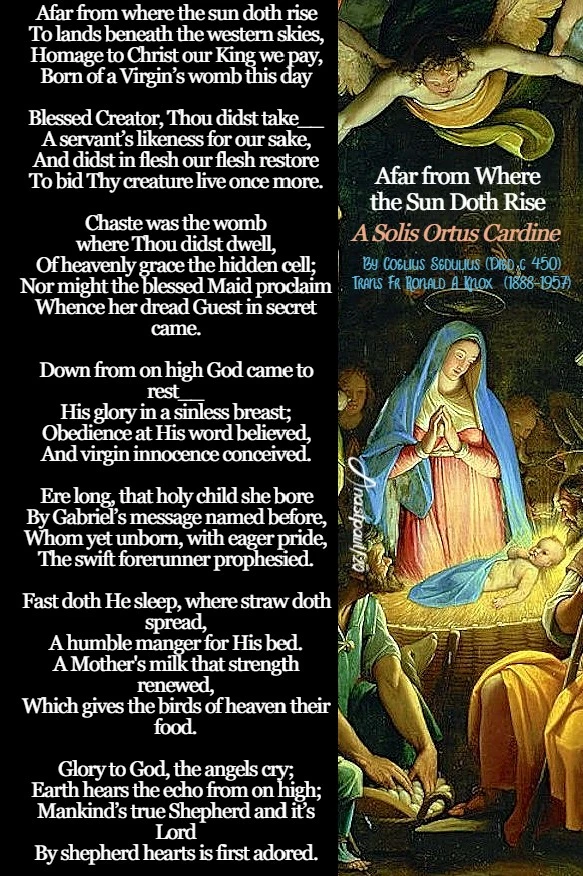
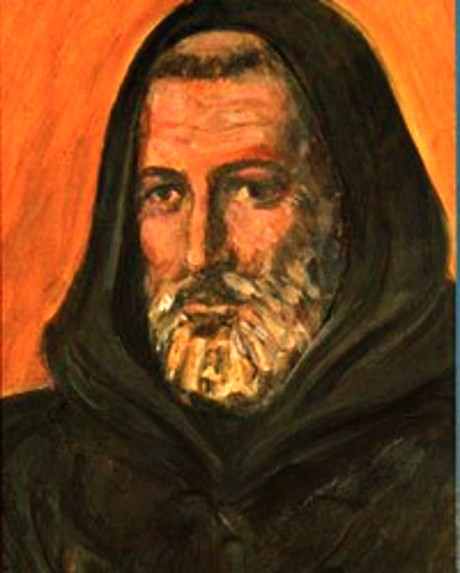
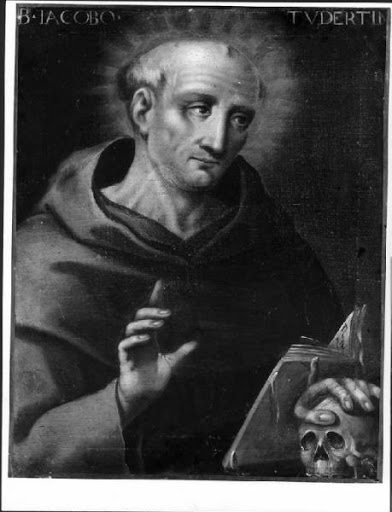
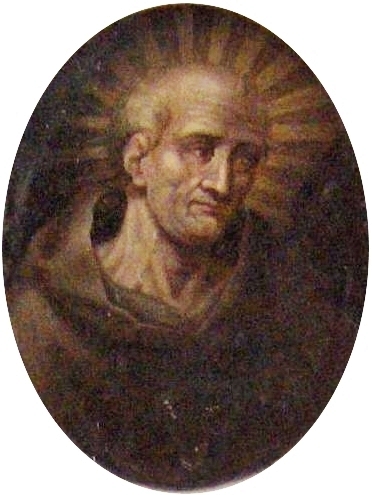
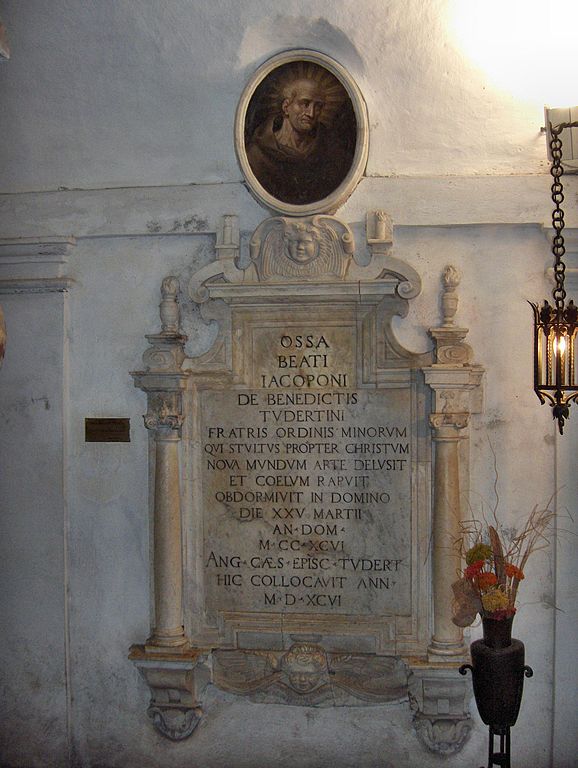

You must be logged in to post a comment.